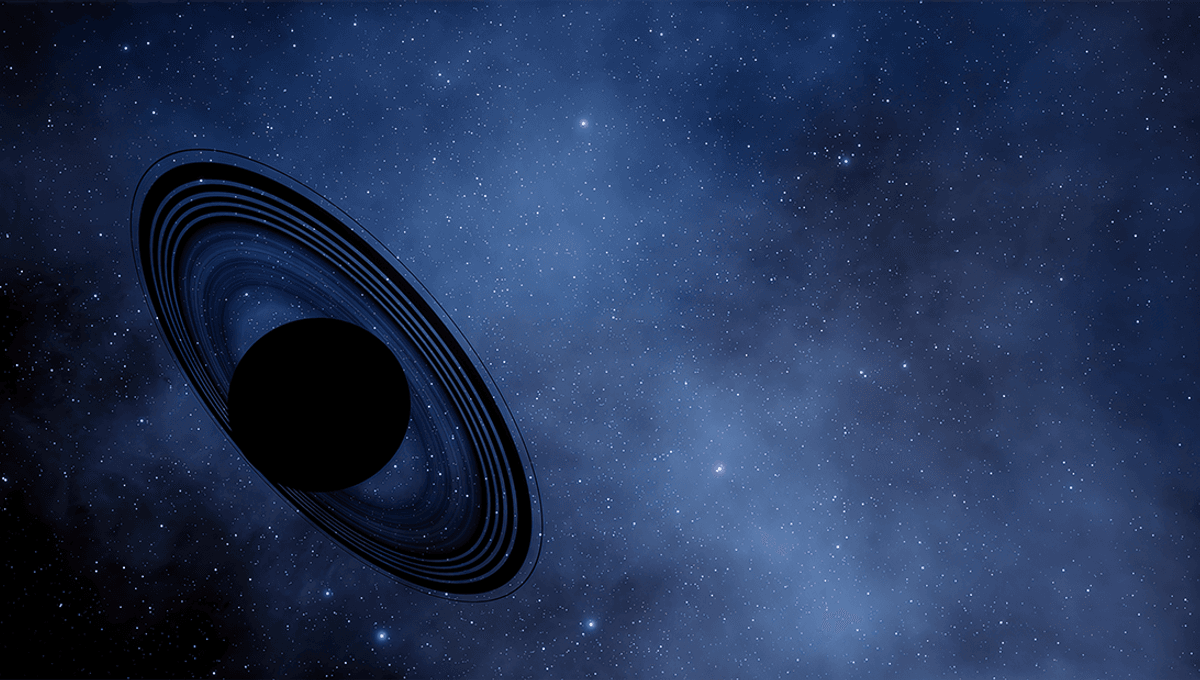
A new study has looked into the possibility that our Solar System could capture and provide a home for a rogue planet as they hurtle through the galaxy, alone.
In 2017, astronomers at the Pan-STARRS1 observatory looking for near-Earth asteroids spotted an object as it hurtled past our Sun at 38.3 kilometers per second (23.8 miles per second).
Soon, telescopes around the world pointed in the unusual object’s direction, trying to capture as much data as they could before it moved away from the Sun. Looking at visible light reflecting off the object, scientists were able to determine its size and shape, finding it was around 400 meters (1,312 feet) long, and likely shaped like a pancake.
The speed and trajectory of the object, A/2017 U1, suggested that it did not come from our Solar System, and that it will leave our Solar System again. ‘Oumuamua, as it is now called, was our first confirmed interstellar visitor. In 2019, we had our second confirmed interstellar visitor in 2I/Borisov, our first rogue comet.
While these bodies are just passing through, it has been suggested that high-inclination Centaurs – small bodies orbiting between Jupiter and Neptune – could have been objects captured during our Solar System’s passage through the interstellar medium.
But could larger objects become captured by our Solar System? How about rogue planets, aka free-floating planets? In a new paper looking into the idea, a team suggests it may be possible.
Rogue planets, according to our best models of formation, are created in the same protoplanetary discs as regular planets, but can become ejected from their home system during close encounters with other systems. It is possible that our own Solar System has produced its own rogue planets.
“In addition to rogue planets being generated during the formation process, planetary scientists have come to realize that our own Solar System has gone through the process of giant planet migration after an initial period (believed to be 850 [million years]) of stable planetary resonance has been broken,” the team explains in their paper.
“An early solar system containing five giant planets was proposed by after numerical models indicated that this is more likely to reproduce the architecture of the current solar system, reproducing the observed scattering of a number of Kuiper Belt objects, after ejecting a Neptune-sized planet.”
This hypothetical planet, according to the team, could now be a rogue, or lurking at the edge of the Solar System as the elusive “Planet 9“. Estimates of how many rogue planets are out there are difficult to pin down, with some suggestions that recently-detected JuMBOs – Jupiter Mass Binary Objects – may form away from stars, adding difficulty to an already messy task. But free-floating planets appear to be a lot more common than we’d have imagined decades ago.
Looking at our closer neighborhood, within a radius of 6 parsecs, there are around 131 stars and brown dwarfs, several of which are known already to have planets. Taking a look at potential capture as we pass through the Milky Way, the team found capture of a rogue planet or object was possible.
“Based on gravitational considerations of the Sun and the resulting fields of the Galaxy due to dark and baryonic matter, for the first time regions in space are estimated where a weak capture process leading to permanent weak capture would be occurring, in a simplified setting,” the team writes.
“Small openings into the solar Hill’s sphere has been determined to exist at about 3.81 LY from the Sun in the direction of the galactic center or opposite to it. Permanent weak capture of interstellar objects into the Solar System is possible through these openings,” they continue, adding that it was possible our Solar System has already captured such objects.
At first, they would be on chaotic orbits, which would slowly transform into permanent capture over many orbits.
“They would not collide with the Sun,” the team adds. “The permanent capture of interstellar comets and rogue planets could occur. A rogue planet could perturb the orbits of the planets that may be possible to detect.”
The study is published in Celestial Mechanics and Dynamical Astronomy.
Source Link: Could The Solar System Have Captured A Rogue Planet? New Study Suggests It's Not Impossible